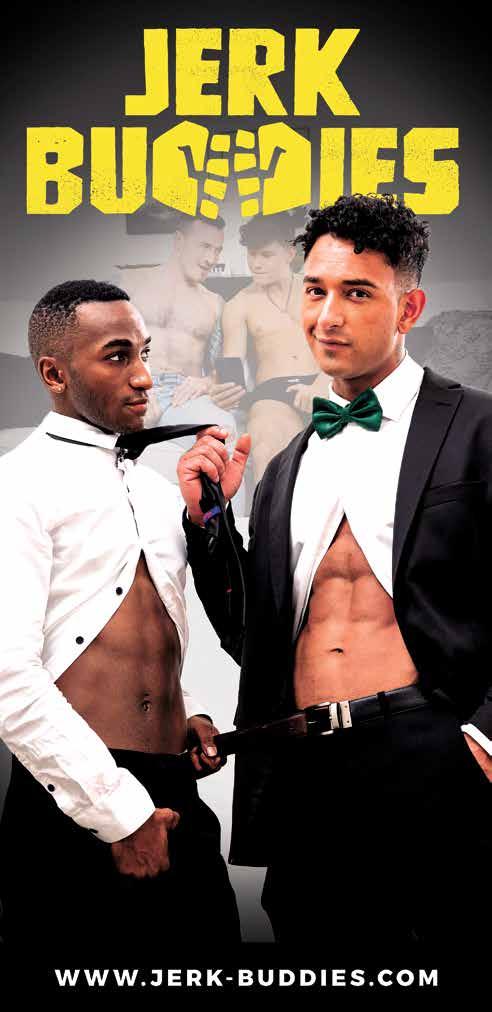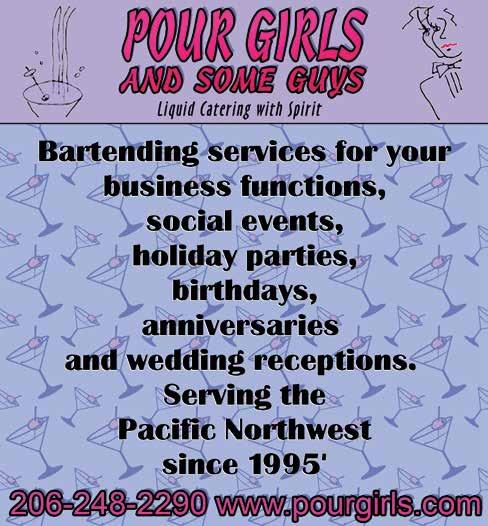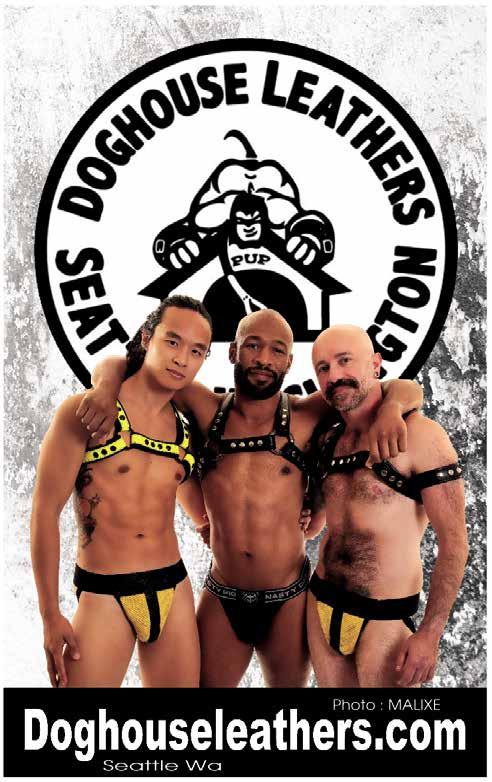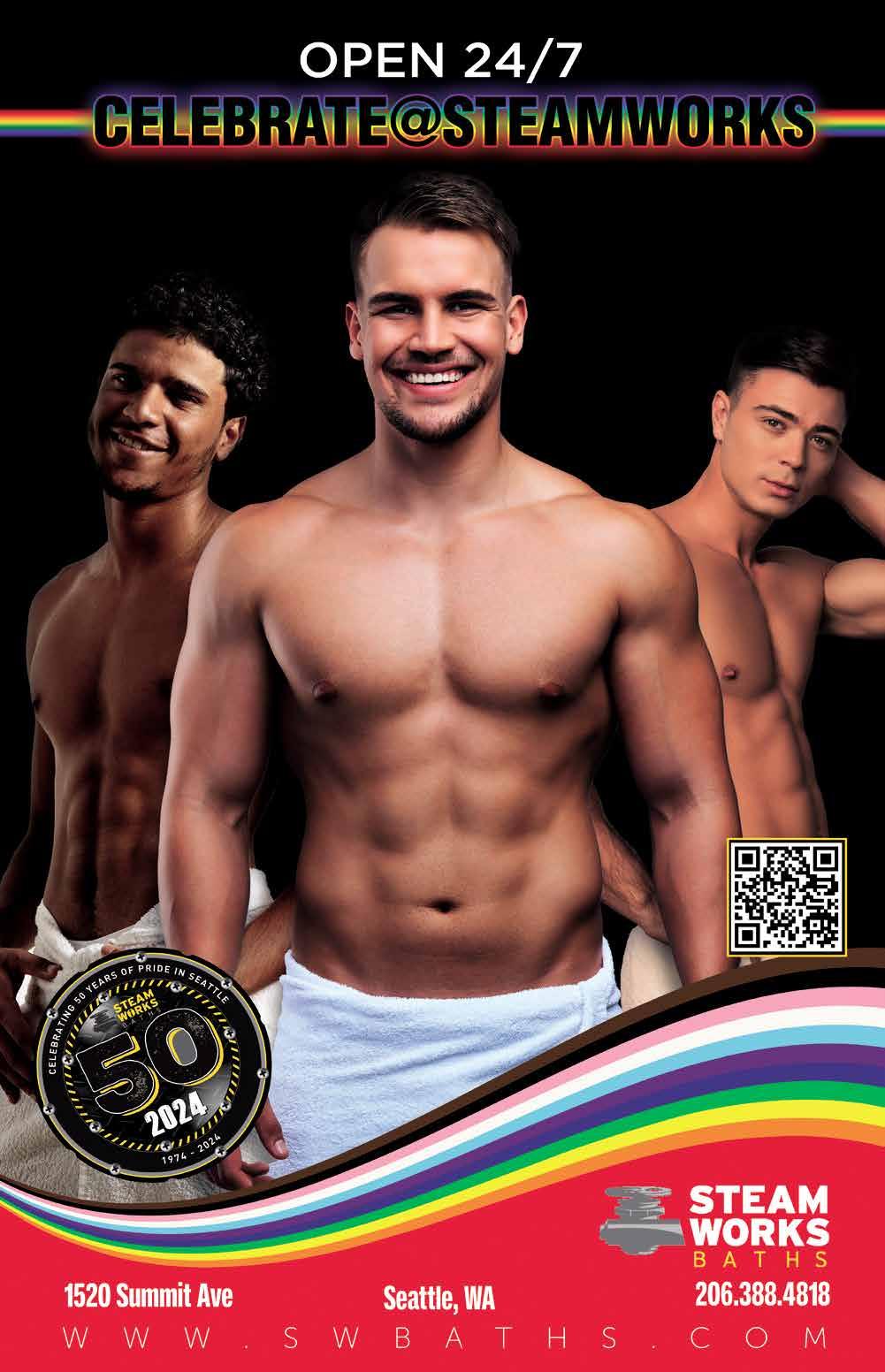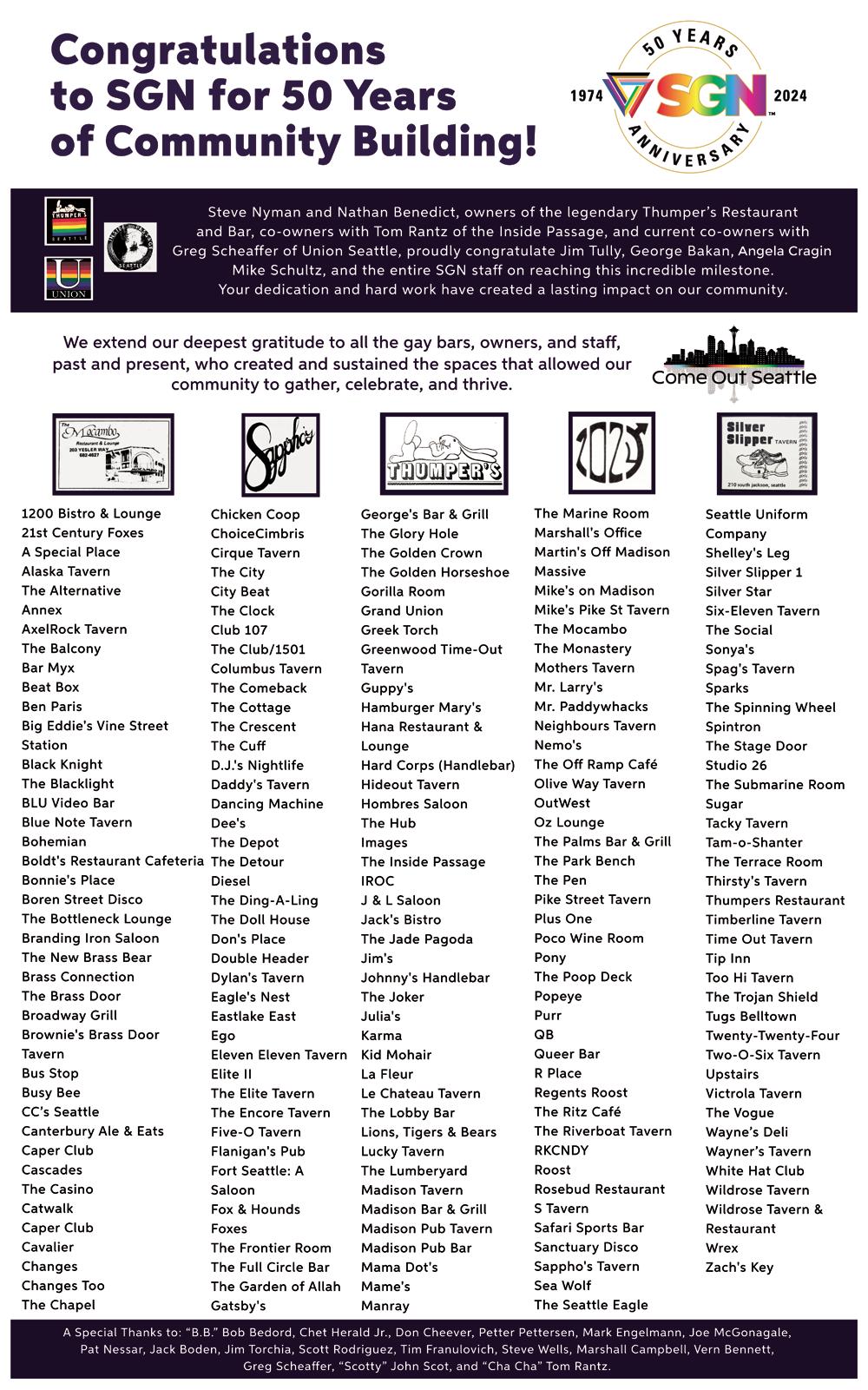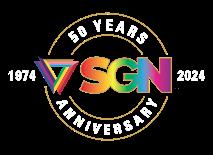

All Stars PRIDE

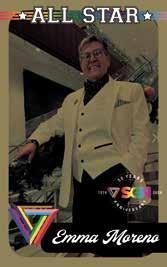
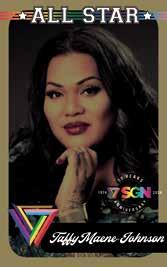
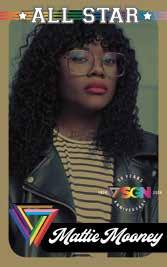
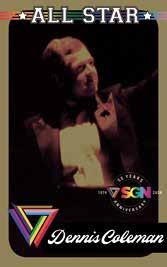
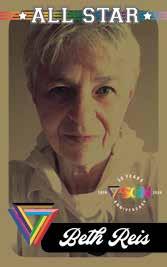
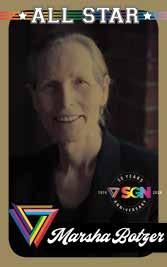
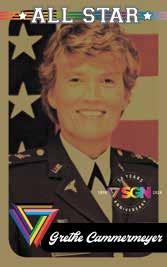
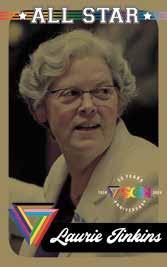
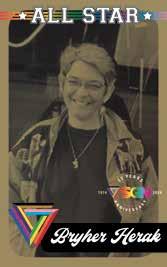
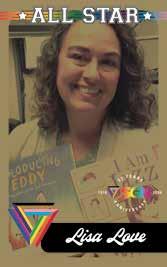
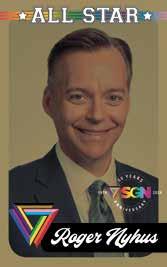 BY AUDREY OSCARSON SGN CONTRIBUTING WRITER
BY AUDREY OSCARSON SGN CONTRIBUTING WRITER
Pride in Seattle is an event full of community, fun, and celebrating identity. Yet this hasn’t always been the case, and we owe the freedom we feel now to many people who did the hard work to get us here. They worked tirelessly, standing up against prejudice and hate to create a community that is welcoming and accepting. They risked their own safety and comfort to fight for a world where LGBTQIA+ people have access to resources, places to feel safe, and dignity.
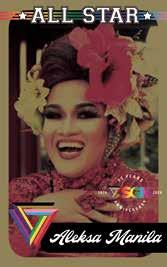
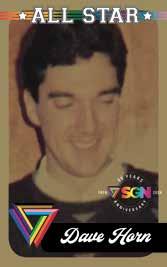
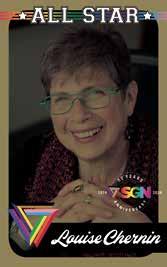
These pioneers deserve to be recognized for their work in paving the way for future generations. While there are many more inspirational leaders in our community, these are just a few that have paved the way for Queer rights in Washington State and farther. This list of living people is not intended to be exhaustive or to imply that any individual has contributed more to LGBTQ+ equality than others. Join us as we honor the people, nominated by the SGN staff, that have fought relentlessly for our rights and have helped to create a culture in which we can celebrate Pride. SEE ALL-STARS PAGE 8
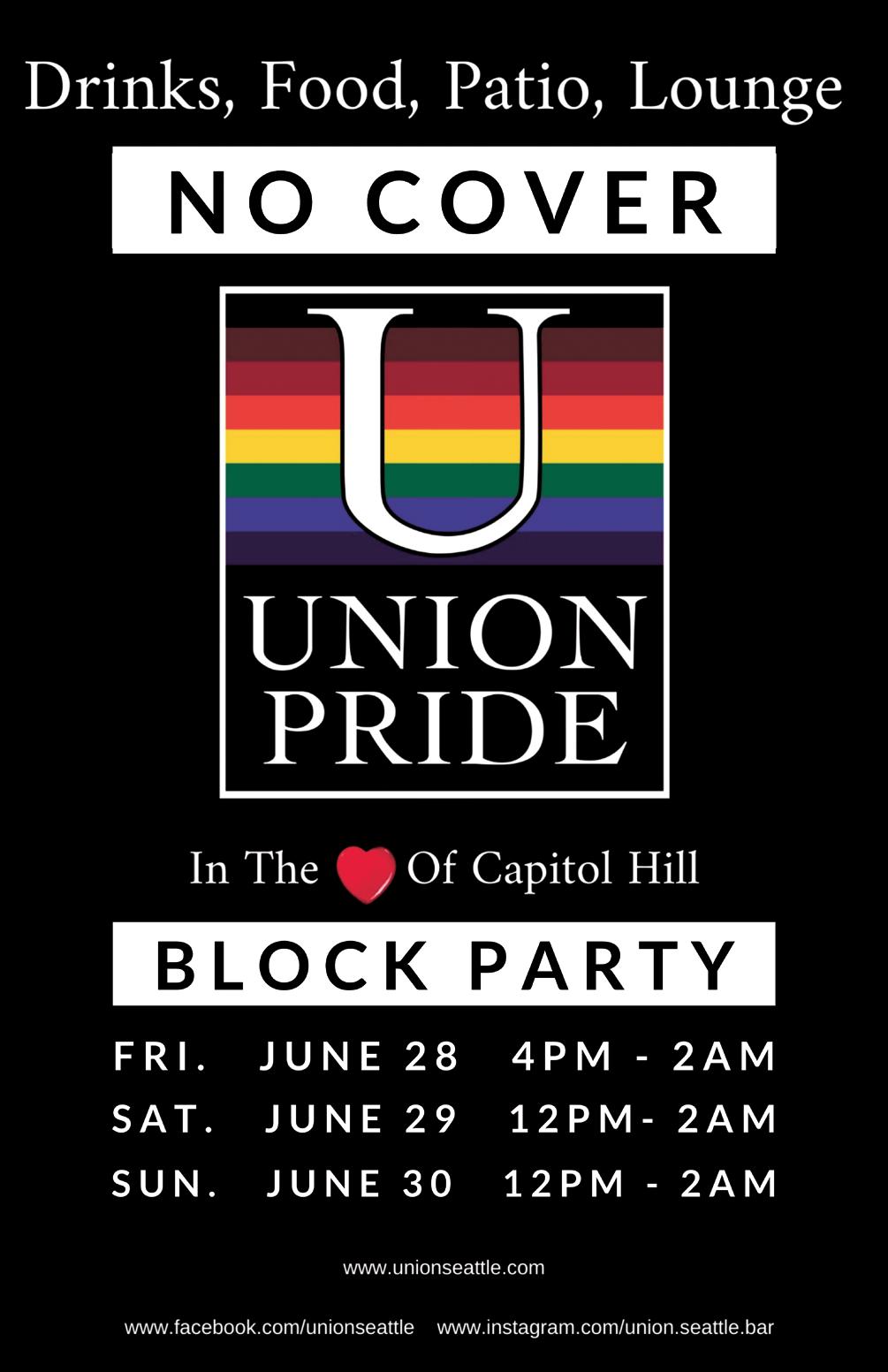
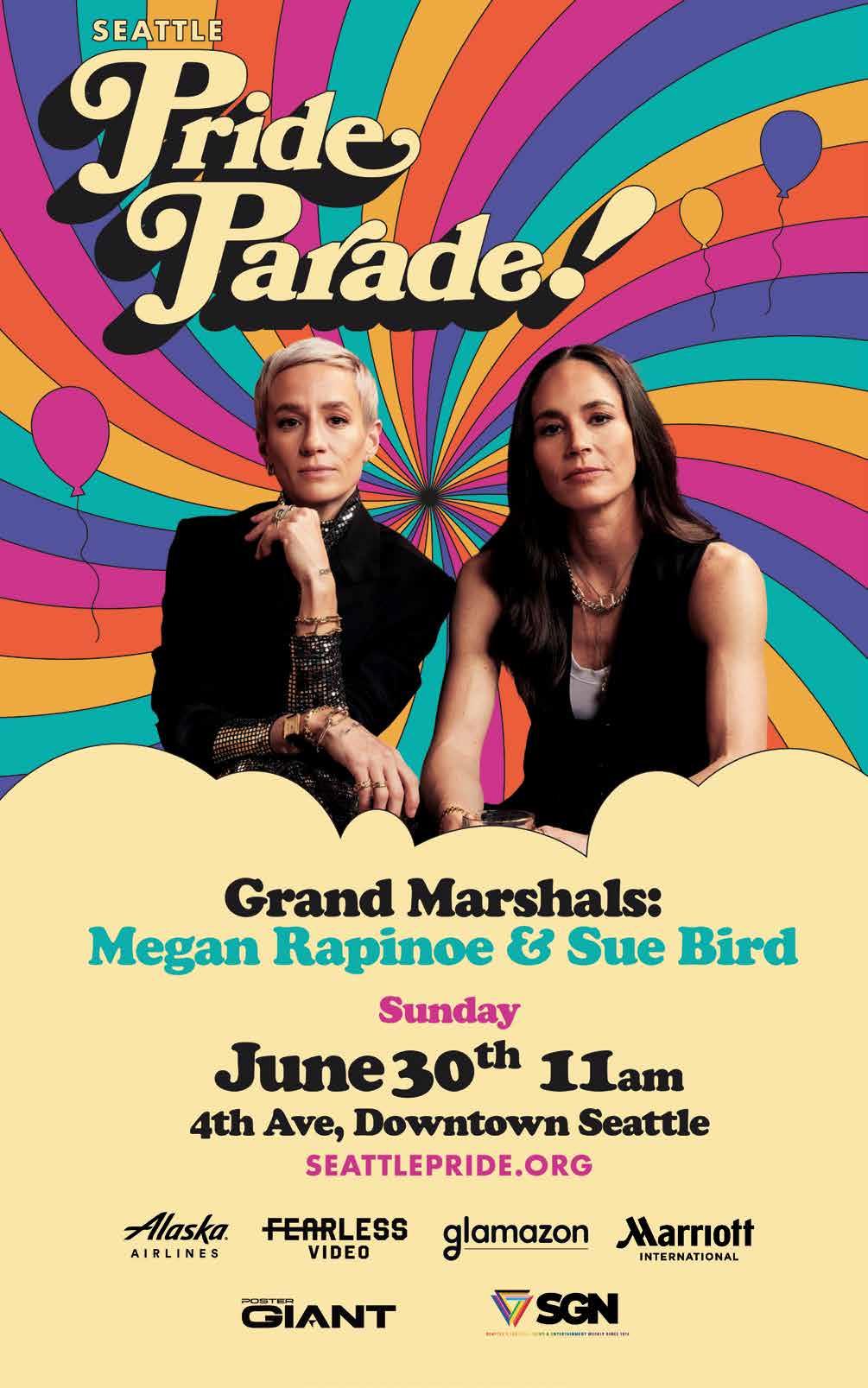
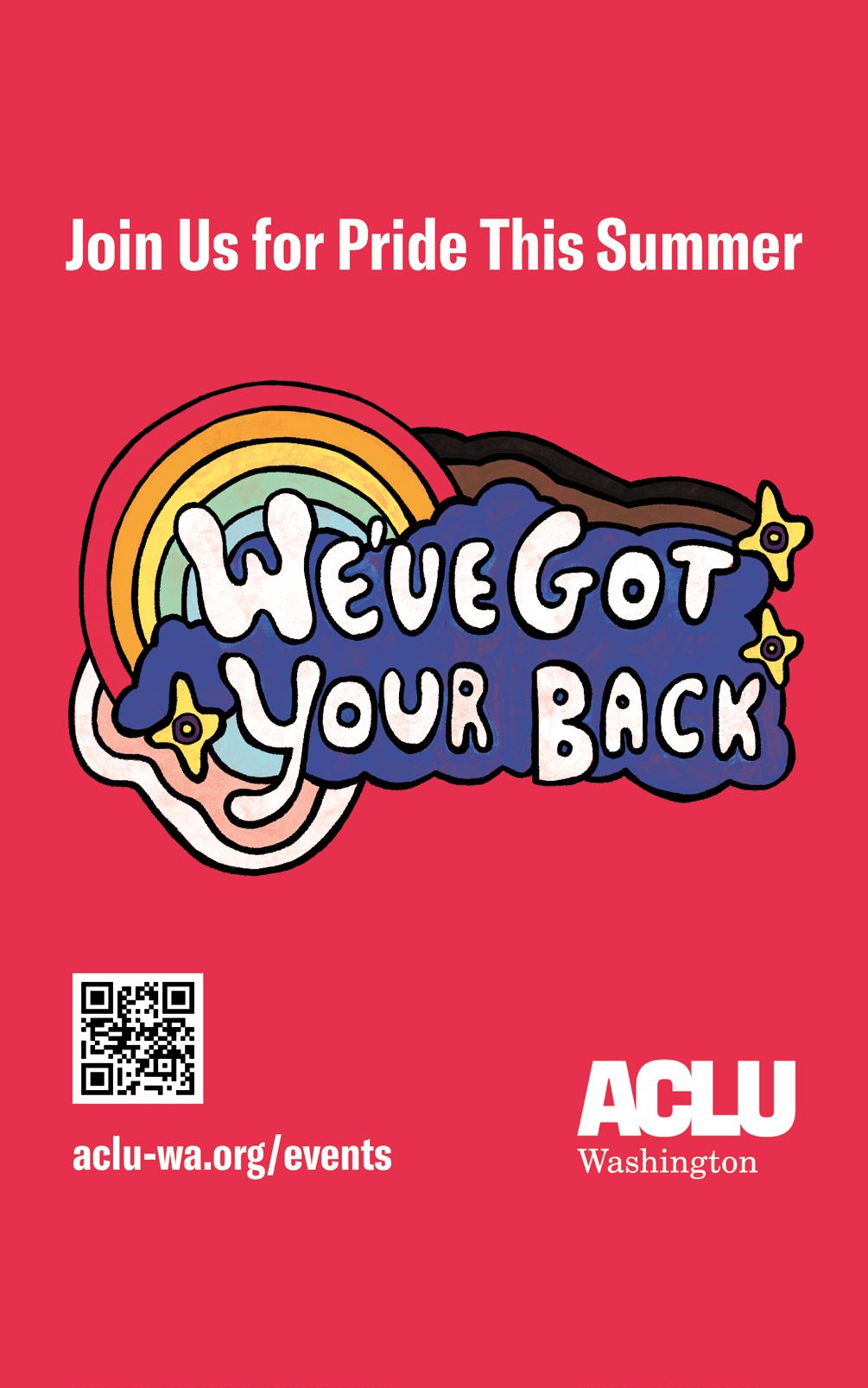

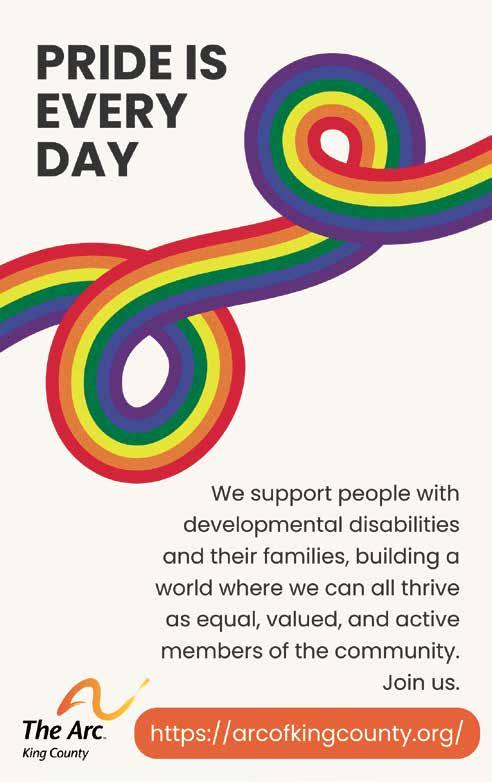
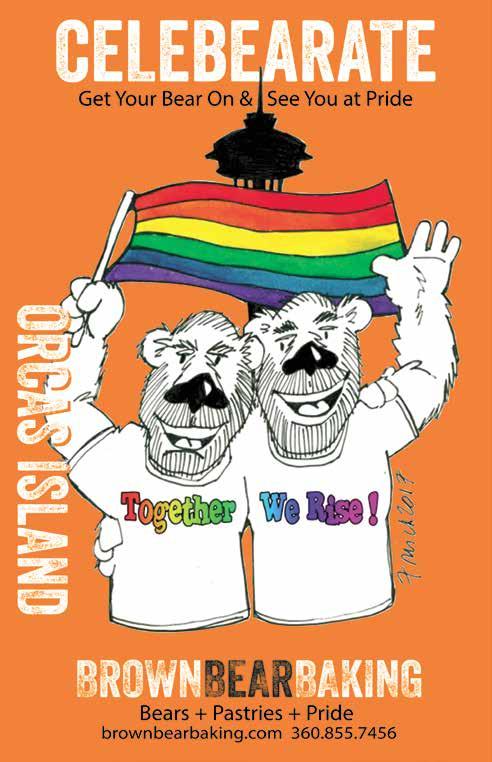
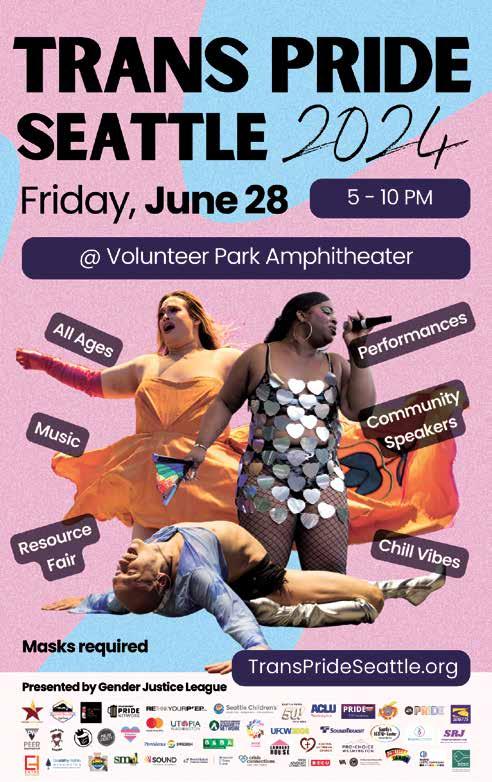
White House proclamation: 2024 Lesbian, Gay, Bisexual, Transgender, Queer, and Intersex Pride Month
During Pride Month, we celebrate the extraordinary courage and contributions of the Lesbian, Gay, Bisexual, Transgender, Queer, and Intersex (LGBTQI+) community. We reflect on the progress we have made so far in pursuit of equality, justice, and inclusion. We recommit ourselves to do more to support LGBTQI+ rights at home and around the world.
For generations, LGBTQI+ Americans have summoned the courage to live authentically and proudly — even when it meant putting their lives and livelihoods at risk. In 1969 at the Stonewall Inn in New York, brave LGBTQI+ individuals protested the violence and marginalization they faced, boosting a civil rights movement for the liberation of LGBTQI+ people that has transformed our [nation]. Since then, courageous LGBTQI+ Americans continue to inspire and bring hope to all people seeking a life true to who they are. LGBTQI+ people also continue to enrich every aspect of American life as educators, entertainers, entrepreneurs, athletes, actors, artists, scientists, scholars, diplomats, doctors, service members, veterans, and so much more.
Advancing equality for the LGBTQI+ community is a top priority for my [administration]. I signed the historic Respect for Marriage Act, which protects the marriage of same-sex and interracial couples. As Commander in Chief, I was proud to have ended the ban on transgender Americans serving in the United States military. I signed historic [executive orders] strengthening civil rights protections for housing, employment, health care, education, and the justice system. We are also combating the dangerous and cruel practice of so-called “conversion therapy” and implementing a national strategy to end the HIV epidemic in this country. We ended the disgraceful practice of banning gay and bisexual men from donating blood. We are doing this work here at home and around
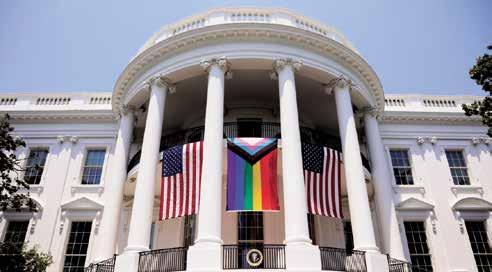
the globe, where LGBTQI+ community members are fighting for recognition of their fundamental human rights and seeking to live full lives, free from hate-fueled violence and discrimination.
But for all the progress, we know [that] real challenges persist. Last year, as we celebrated Pride Month on the South Lawn of the White House, I had the honor of meeting survivors of the Club Q and Pulse shootings, which tragically took the lives of LGBTQI+ Americans. Although my [administration] passed the most significant gun law in nearly 30 years, the Congress must do its part and ban assault weapons. At the same time, families across the country face excruciating decisions to relocate to a different [state] to protect their children from dangerous and hateful antiLGBTQI+ laws, which target transgender children, threaten families, and criminalize doctors and nurses. These bills and laws attack our most basic values and freedoms as Americans: the right to be yourself, the right to make your own medical decisions, and the right to raise your own children.

Some things should never be put at risk: your life, your safety, and your dignity.
To the entire LGBTQI+ community — and especially transgender children — please know that your President and my entire [administration] have your back. We see you for who you are: made in the image of God and deserving of dignity, respect, and support. That is why I have taken historic action to protect the LGBTQI+ community. We are ensuring that the LGBTQI+ community is protected against discrimination when accessing health care, and the Department of Health and Human Services, Department of Homeland Security, and Department of Justice launched a safety partnership to provide critical training and support to the community, including resources to help report hate crimes and better protect festivals, marches, community centers, businesses, and health care providers serving the community. The Department of Education and the Department of Justice are also addressing whether book bans may violate [federal] civil rights laws when they target LGBTQI+ students
or students of color and create hostile classroom environments.
Additionally, we are providing specialized services through the nationwide crisis hotline for LGBTQI+ youth who feel isolated and overwhelmed — anyone who needs help can call 988 and then press 3 to be connected to a professional counselor. We are committing more resources for mental health programs that help families support and affirm their kids and are starting a new [federal] initiative to address LGBTQI+ homelessness. We finalized new regulations requiring [states] to protect LGBTQI+ kids in foster care.
America is the only [nation] in the world founded on an idea: We are all created equal and deserve to be treated equally throughout our lives. We have never fully lived up to that idea, but we have never fully walked away from it either. This month, we recommit to realizing the promise of America for all Americans, to celebrating courageous LGBTQI+ people, and to taking pride in the example they set for our [nation] and the world.
NOW, THEREFORE, I, JOSEPH R. BIDEN JR., President of the United States of America, by virtue of the authority vested in me by the Constitution and the laws of the United States, do hereby proclaim June 2024 as Lesbian, Gay, Bisexual, Transgender, Queer, and Intersex Pride Month. I call upon the people of the United States to recognize the achievements of the LGBTQI+ community, to celebrate the great diversity of the American people, and to wave their flags of pride high.
IN WITNESS WHEREOF, I have hereunto set my hand this thirty-first day of May, in the year of our Lord two thousand twenty-four, and of the Independence of the United States of America the two hundred and forty-eighth.
JOSEPH R. BIDEN JR.
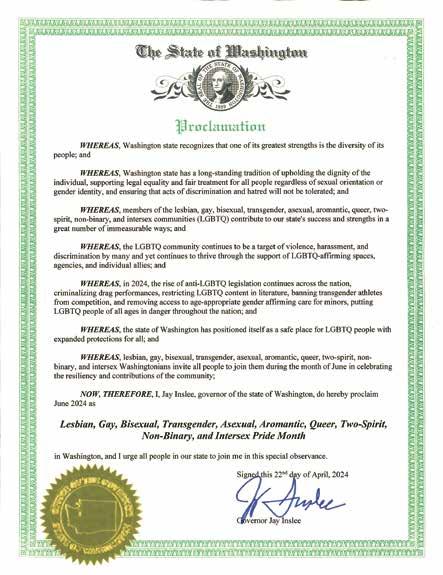
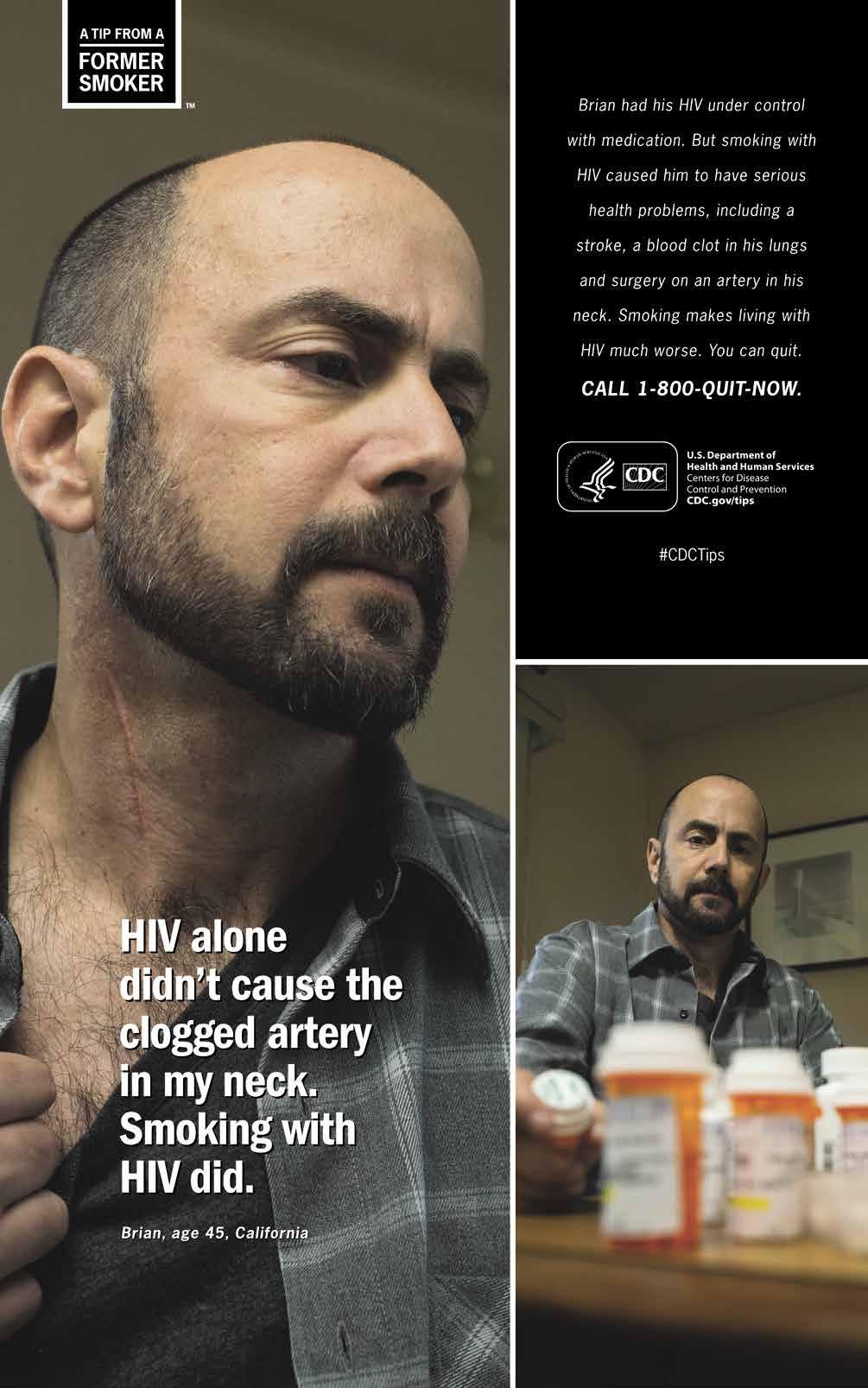
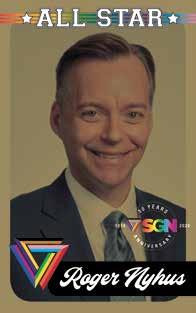
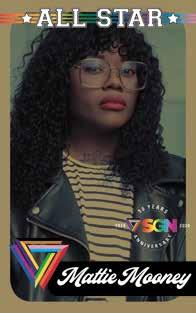
Roger Nyhus Roger Nyhus is the US ambassador to Barbados and the Eastern Caribbean; he was confirmed unanimously in 2023. A Gay man who came out in 1988, he has spent much of his life fighting for marriage equality and equal rights for Queer people. He launched a successful campaign for marriage equality in Washington State and has worked with various organizations, including GSBA, Lambda Legal, and the Human Rights Campaign.
“I am very proud to represent President Biden as a US ambassador in a region not historically supportive of our rights,” Nyhus said. “I believe he and his team sent me here for a reason: to open hearts and minds for all disadvantaged people.”
Mattie MooneyFor Trans people, navigating healthcare can be a complicated and stressful process. Mattie Mooney is working to change that. Through advocacy, education, and legislative advocacy, they have helped Trans youth feel seen and accepted.
They have also worked to support Trans women of color with financial stability and housing, as well as having co-founded Taking B(l)ack Pride.
With the rise of anti-Trans laws in many states, their work has become invaluable to the Trans community, especially for youth and their families.
“It’s one thing to discuss the impact of these laws on our community and the parents and families of Trans children [in the] abstract, but it’s another to see children and their families fighting to access healthcare, fleeing hostile states, [and] hiding details of their care, [and help] them to create emergency plans against government persecution of children who are just wanting to exist in a way that is true to them,” said Mooney.
“It really highlights why I do the work that I do (there is a moral and human imperative to make sure Trans kids and youth live to adulthood and beyond in their truth and as a beacon of hope for the Trans kids and youth after them) and how dangerous our government has made our authentic experiences.”
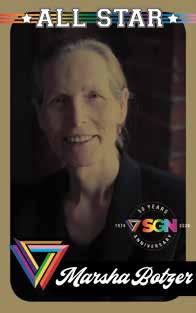
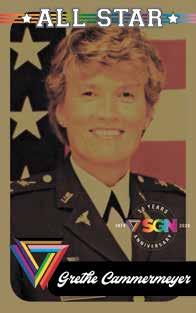
Marsha Botzer
Since coming out in the ’70s, Marsha Botzer has worked tirelessly to advocate for LGBTQIA+ people. She is the founder of Seattle’s Ingersoll Gender Center, as well as a founding member of Equal Rights Washington and Seattle’s Out In Front Leadership project. Throughout her career, she has been a part of countless other organizations dedicated to securing rights for Queer people.
“I am very proud to be a part of a community passing laws to protect us here in Washington State, to change things at the national level through that work and always toward the idea of winning gender identity and expression,” Botzer said. “Those are thrilling, and also heartbreaking moments. But the wins are absolutely worth it.”
Grethe Cammermeyer
Colonel Grethe Cammermeyer was outed as a Lesbian while in the military in 1988, which led to her being discharged. She went on to challenge that discharge and ensure that Lesbian, Gay, and Bisexual people can serve in the military. Later, she also helped repeal the “Don’t Ask, Don’t Tell” policy, which prevented service members from being open about their sexuality.
“[I] hope we don’t lose the hard-foughtfor rights we now have,” Cammermeyer said. “VOTE to protect those rights.”
All Stars PRIDE
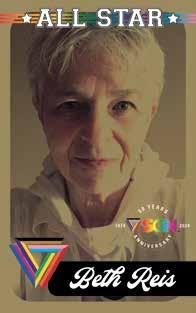
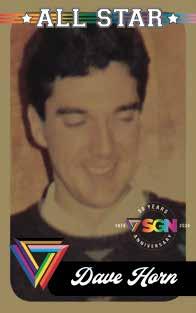
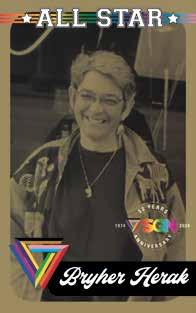
Beth Reis
Beth Reis has worked tirelessly for years, fighting for marriage equality and for Queer youth.
For her, coming out was a long process, which culminated in joining Legal Voice’s lawsuit for marriage equality. She helped to author the Family Life and Sexual Health Curriculum starting in 1985 and helped it become increasingly Queer-inclusive over the years.
Reis was also involved with the Safe Schools Coalition, a group dedicated to making schools a safe space for LGBTQIA+ youth and authored or coauthored many of its publications.
“I just look forward to a day when Trans and gender-expansive people have the same legal rights and are afforded the same respect and dignity — and places to pee at work and at school and access to genderaffirming health care — everywhere in the country, if not in the entire world, as cisgender people have,” Reis said.
Dave Horn
Dave Horn has fought for legal representation and rights for Queer people since the ’90s. He has been a part of Hands off Washington and the Legal Marriage Alliance, among numerous other organizations, and helped to found the attorney general’s civil rights division. He’s worked on the anti-bullying law, which prohibits bullying based on sexual or gender identity.
“We need to fight hard against the tide of fascism sweeping the globe and our own country,” said Horn. “We especially must redouble our efforts to achieve understanding and acceptance for our Trans friends.”
Bryher Herak
Bryher Herak, a proud dyke, came out in 1971 and moved to Seattle a year later, where she began to find a community with other Lesbians, with whom she created support groups, one of which was Women Out Now, for primarily Lesbians in prison. During this time, she also was an attorney investigating Queer discrimination cases.
In 1984, she helped start the Wildrose, one of the oldest Lesbian bars in the nation (and still operating). After selling it, she continued her work as a mediator for the Montana Human Rights Campaign and fought for Queer rights across the state.
“I love Queer people,” Herak said. “I love the LGBTQIA+ community. I want us to walk proud. I want young folks to be able to be fully who they are without fear. I want our world to accept us, and I want us to continue to be the outrageous loving beautiful people we are.”
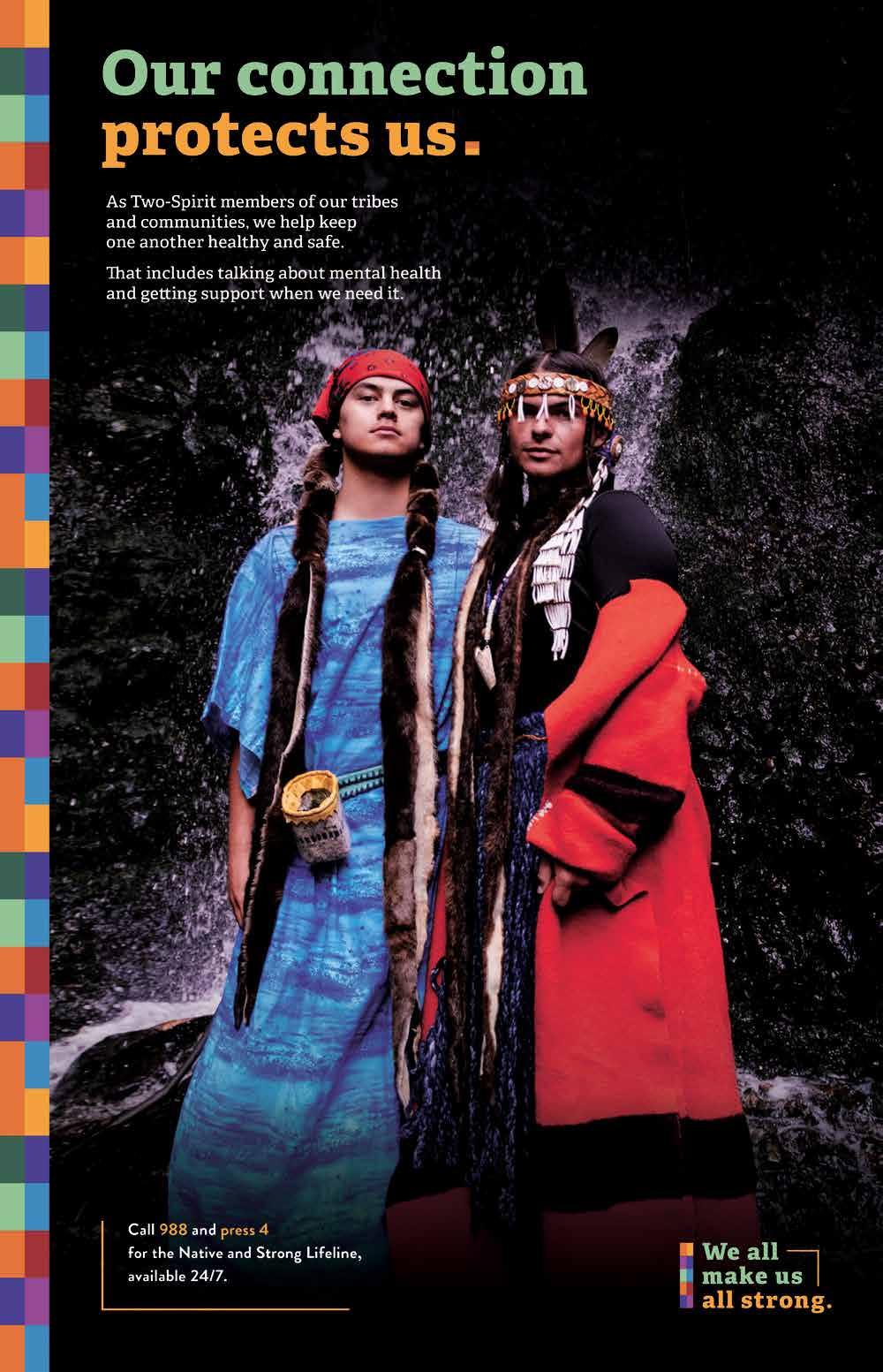
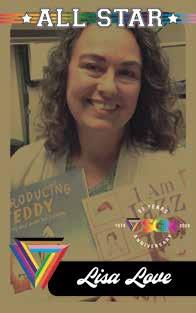
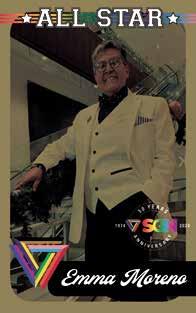
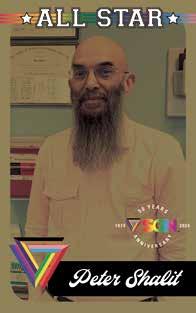
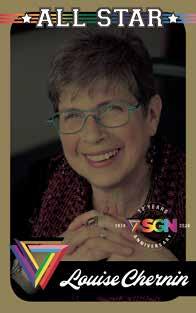
Lisa Love
Lisa Love began her work to make schools a more inclusive place while she was in graduate school, after coming out to her unsupportive family. She went on to become a high school teacher, where she facilitated the Gender and Sexuality Alliance, and later came to oversee all LGBTQIA+ programs in the Seattle School District. Throughout her time there, she has supported students, staff, and families who are facing bullying or discrimination for their identity, and helped to develop training so that schools can become a safer, more welcoming environment for Queer students.
“I hope all young people can go to school and bring their whole selves,” Love said. “I hope students have enough empathy and awareness to be loving, kind, and supportive of their LGBTQ+ friends and classmates, that there is no bullying or harassment, and that all students experience school as a safe and welcoming space. If we can establish this early in the lives of young people, they will grow up being more empathic humans who will create space for all people to live honestly and openly as they are.”
Emma Moreno
Emma Moreno has worked with multiple organizations in the Queer community since 1994, to raise funds for the education and prevention of HIV at a time when it was rampant, especially within the Latino community. She was the first executive director of Entre Hermanos and won the title of Ms. Gay Latina in 1994. Moreno has also created a scholarship fund in honor of her Trans son, which has assisted 27 Latinx LGBTQIA+ students.
“My hope is to have barrier-free healthcare for all Trans people,” Moreno said. “My hope is to strive to talk to more people who have different beliefs and ideas from the ones that I hold, and initiate conversations with strangers about transphobia, working on creating a world that works for everyone.”
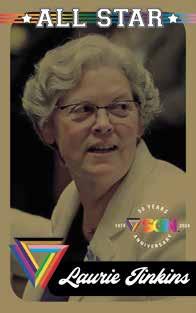
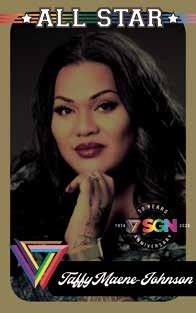
Peter Shalit
Dr. Peter Shalit has been working in healthcare since the 1980s, attending to Queer people’s unique healthcare needs. In 1990, he started his own practice in response to the lack of appropriate care for LGBTQIA+ people in general medical care. In it, he strives to provide respectful, appropriate, and knowledgeable care for Queer people, and he also helps to educate other medical practitioners on the needs of the community.
“I would love for Seattle to have an ongoing, full-service, public, nonprofit medical clinic that focuses on our community, and I hope that will come to pass before too long,” Shalit said.
Louise Chernin
Louise Chernin is the former CEO of the Greater Seattle Business Association (GSBA), an LGBTQIA+ chamber of commerce based in Seattle, and a founding member of the National LGBTQ Chamber of Commerce. Through her work, she has helped Queer-owned small businesses thrive and access resources so that they can continue operating. She has worked to change systems that prevent them from national certification.
“My hopes are that we can all live our lives openly and joyfully, to be who we are and all we can be, without fear of discrimination, harassment, and violence, in Washington, across the country, and globally,” Chernin said.
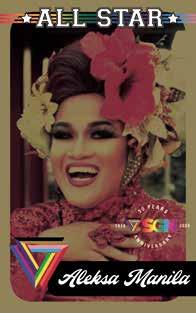
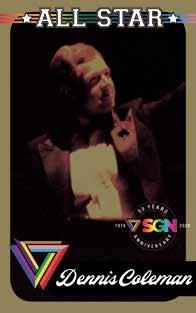
Laurie Jinkins
Laurie Jinkins is the first woman and Lesbian Speaker of the House of Representatives in Olympia. She has spent her time in politics fighting for the rights of LGBTQIA+ people and has worked on many campaigns to defeat anti-Queer ballot measures. She helped to pass antidiscrimination ordinances in Tacoma, and hopes that she can pave the way for other Queer people to enter politics.
“We still have so much work to do to elevate the voices of those who are so frequently unheard within our community: Queer and Trans people, especially those from BIPOC communities; youth; seniors; those with disabilities,” Jinkins said. “ For those of us who’ve seen many of our needs met, I hope we continue to advocate and follow the leadership of those whose voices have still not been heard. Well, that and CELEBRATE OUR PRIDE!”
Taffy Maene-Johnson
Taffy Maene-Johnson is the founder of UTOPIA Washington, an organization dedicated to the support and well-being of Queer and Trans Pacific Island people. She works to blend cultural and Queer identities in a way that celebrates their intersection. As a fa’afafine, a Samoan cultural gender identity, she has a deep understanding of how intersectionality can impact the experiences a Queer person has.
Under her guidance, UTOPIA Washington provides access to medical care, food, and support while also pushing for changes in the system so that Queer and Trans Pacific Island people can feel welcome and thrive in the Pacific Northwest.
“I aim to establish robust support systems that provide continuous resources, education, and advocacy for future generations of MVPFAFF+ and 2SLGBTQIA+ individuals,” Maene-Johnson said. “These sustainable support systems will ensure that our community remains strong and that every person has access to the help they need to thrive.”
Aleksa Manila
Aleksa Manila is a genderqueer drag queen who combines her background in drag with her work as a behavioral health therapist and drug counselor. She has been recognized for her work in the Queer and Filipino communities, and was recently featured in a PBS documentary entitled Caretakers. She has a thriving community of drag daughters, giving them support and a second family.
“I dream of a world that’s full of love where we celebrate each other’s hopes and wishes to better versions of ourselves, authentically and magically,” Manila said.
Dennis Coleman
Dennis Coleman founded the Seattle Men’s Chorus after losing his job at a conservative church, and quickly became an active member. The chorus brought together Gay men and allowed them to celebrate identity in a safe, substance-free environment. During the AIDS crisis, the SMC sang at memorial services and provided a space to grieve and remember those who died, even as the chorus lost dozens of its own members. Coleman helped to found other LGBTQIA+ choruses worldwide, sharing his love for music and community.
“Today, [the SMC and Seattle Women’s Chorus] are stronger than ever and continue to sing about issues (new and old) that illuminate the LGBTQ experience,” Coleman said.
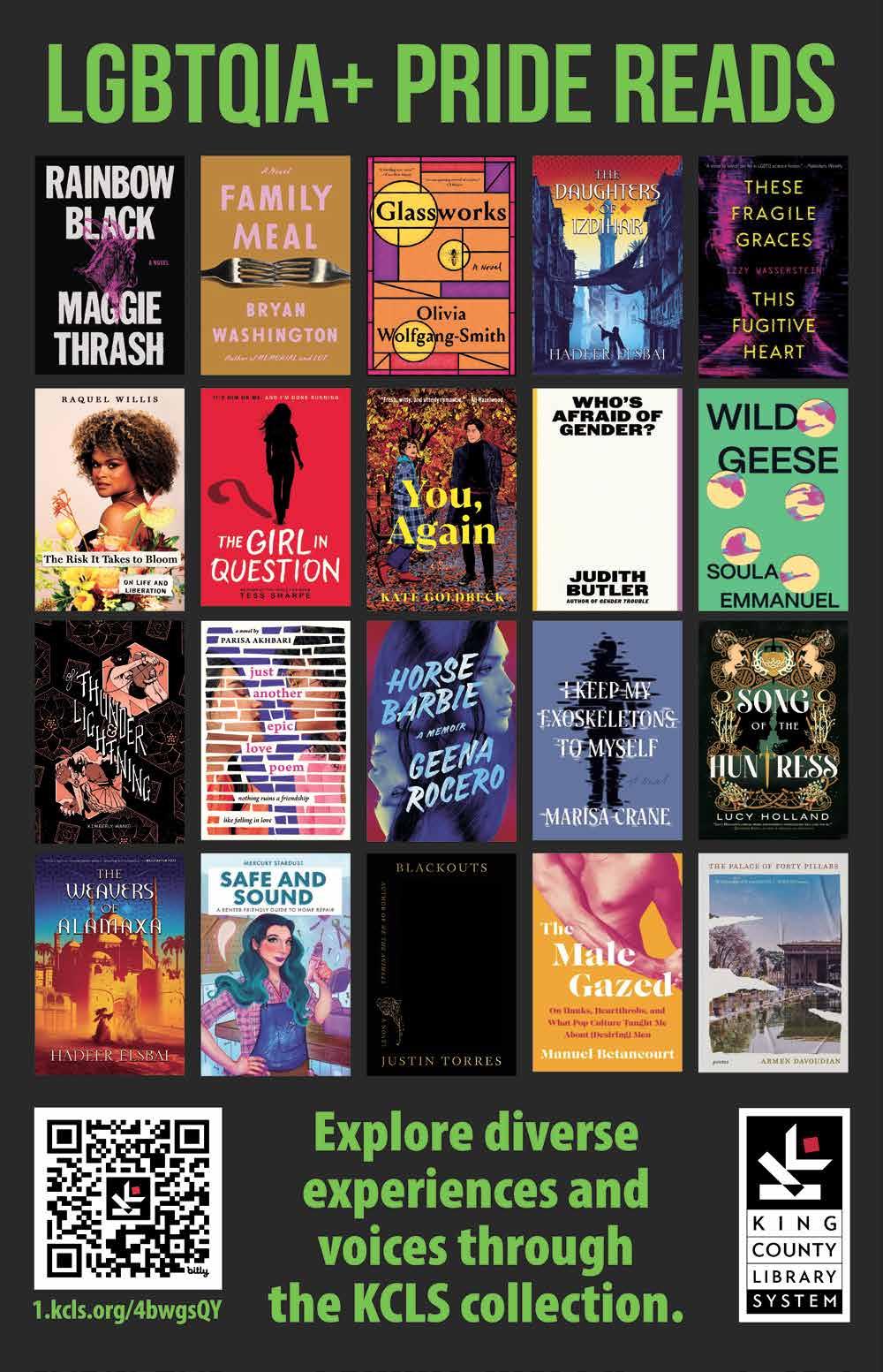
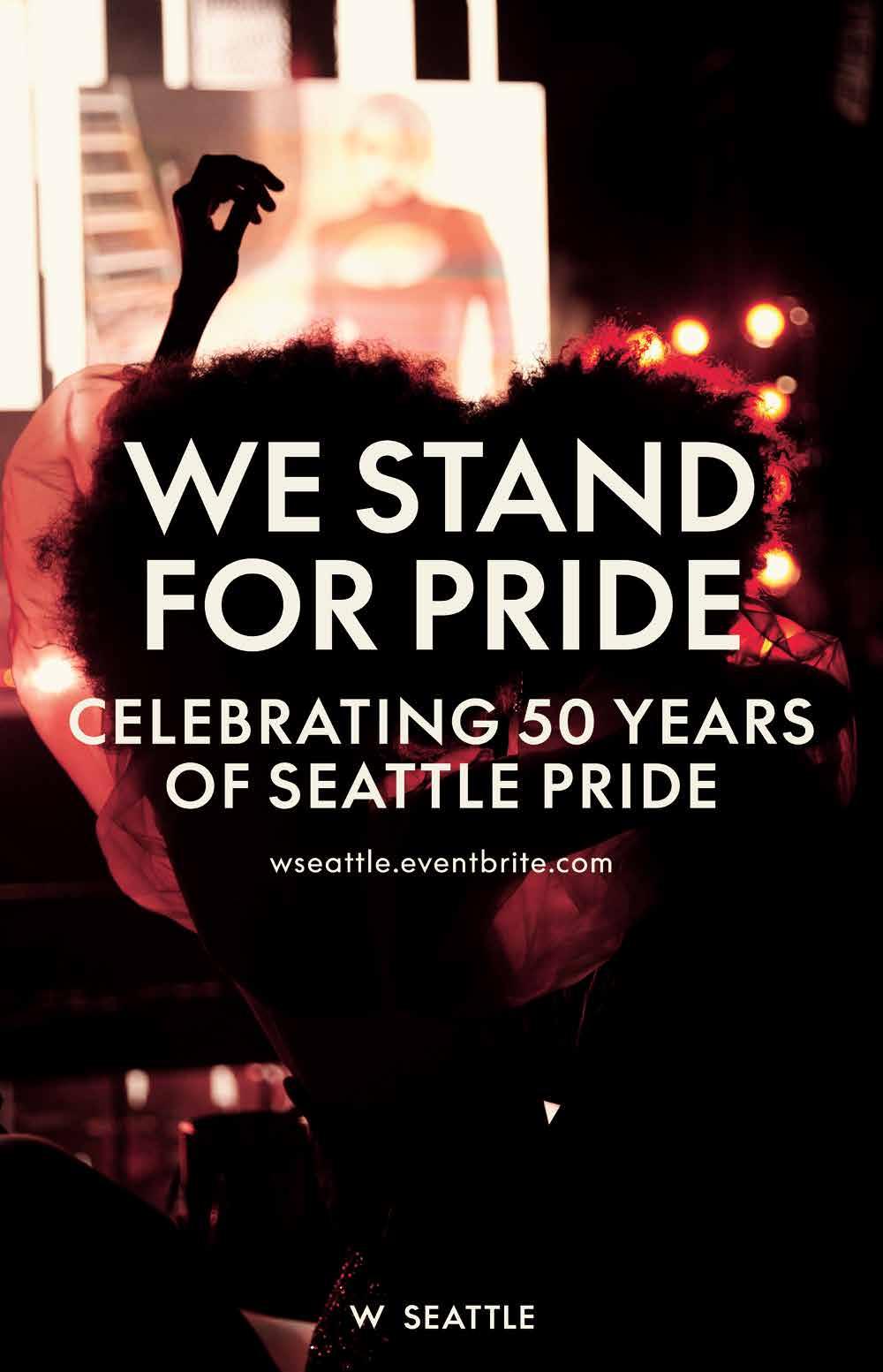
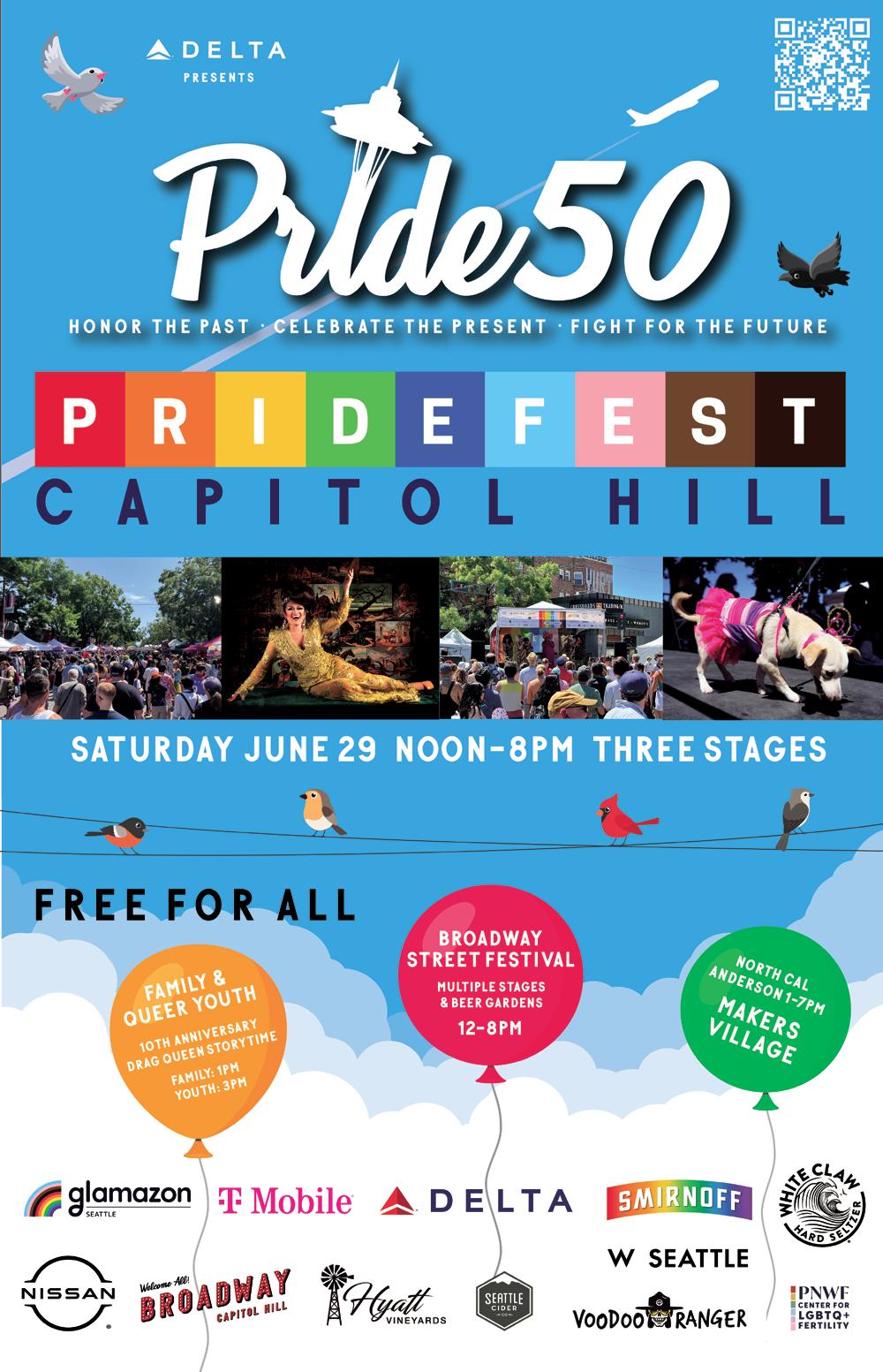
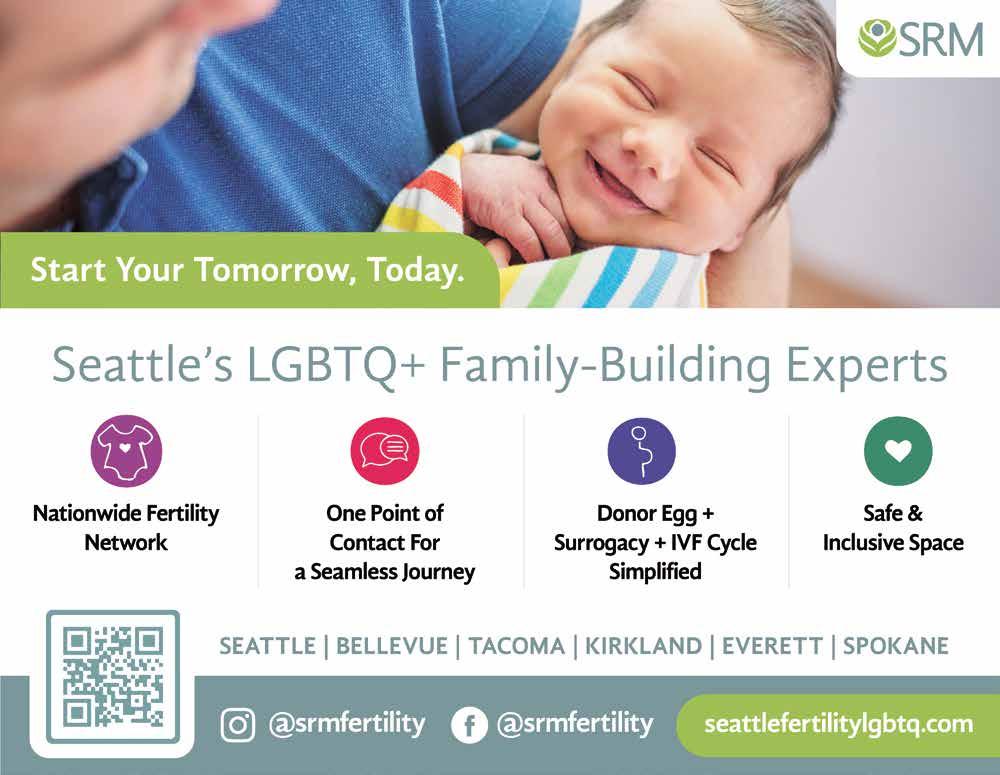

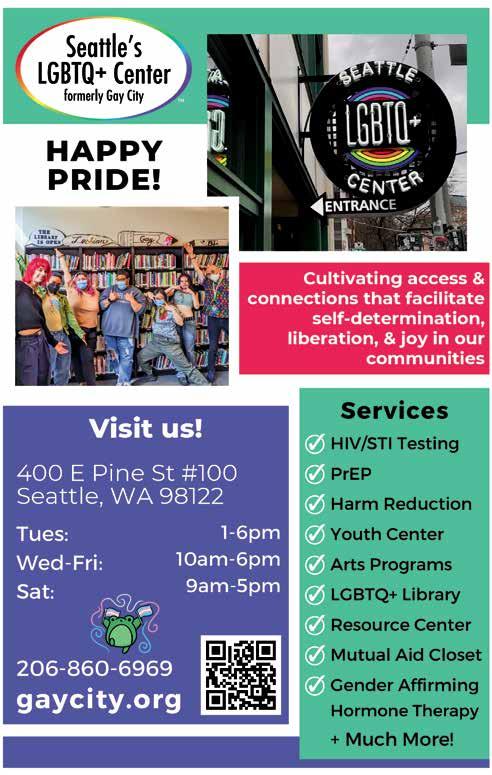
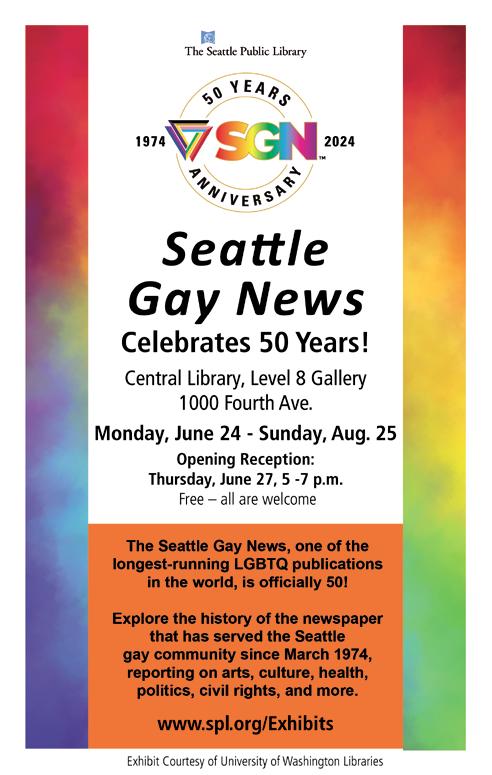
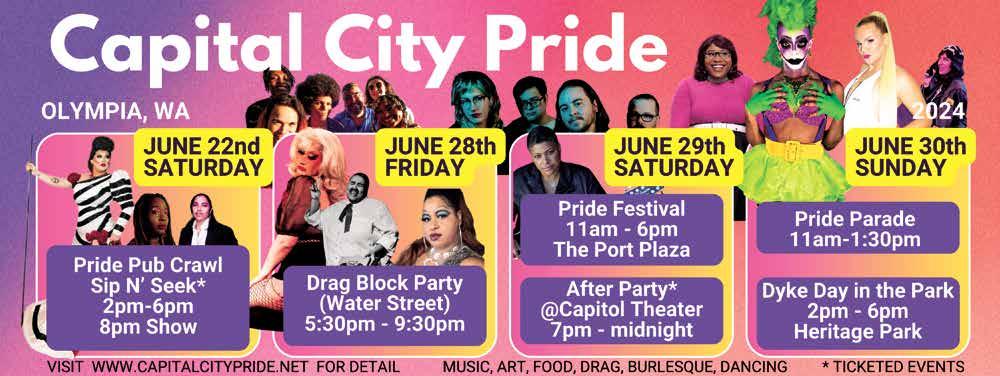
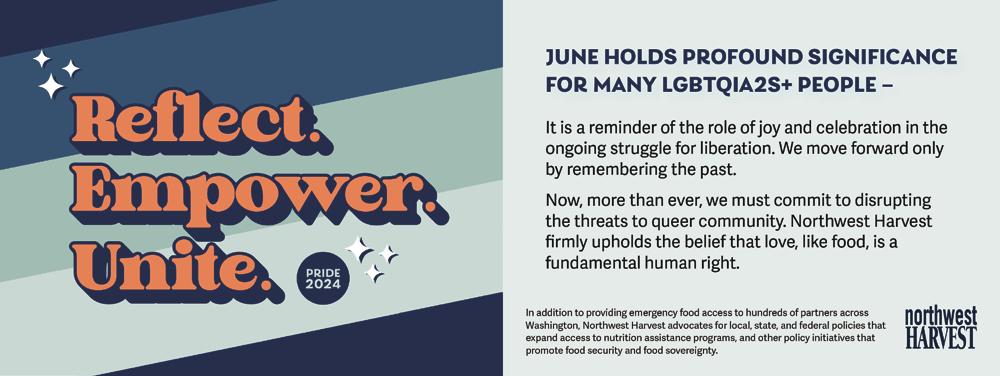
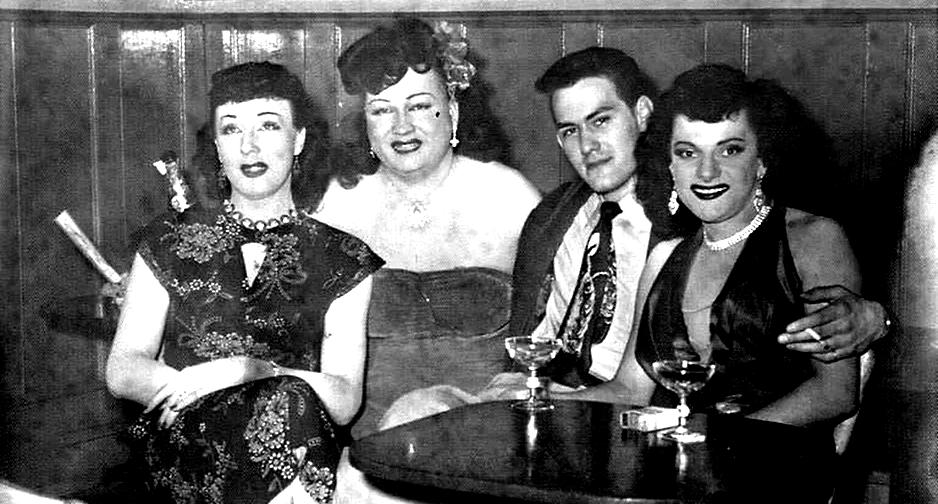
Seattle’s LGBTQ bars in 1974: Out on the Town
BY STEVE NYMAN & NATHAN BENEDICT SPECIAL TO THE SGNIn 1974, before the Kingdome, it was a different time, a different world, a different city.
In 1974, there were 18 bars actively serving Seattle’s Gay community. Primarily centered in Pioneer Square, the scene was flourishing!
In 2024, the 50th anniversary of Pride in Seattle, some of us now prefer to use “Queer” or “LGBTQ+” in recognition of the need to include all segments of our community, but at that time, people would have proudly used “Gay” to include everyone.
The Gay scene had long been happening in Seattle. The first Gay-owned-and-operated establishment, The Garden of Allah (1946–56), opened at 1299 First Ave., now the top of Harbor Steps. There, in the basement of the faded Victorian-era Arlington Hotel, owners Frank Reid and Fred Coleman (soon replaced by Frank Carlburg) created a cabaret featuring female impersonation.
As told by Isaac Monroe, “My first impression of the Garden was of a blast of noise and smoke. The room was jammed. The place was in an absolute uproar, and everyone was screaming with laughter.” Bill Parkin related, “There were two shows a night on weekdays and three shows on Fridays and Saturdays. The show would last 45 minutes. There were dark blue and pink fluorescent bulbs behind sconces, so
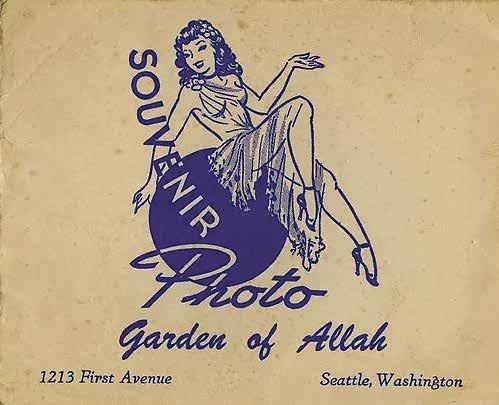
the Garden was filled with a soft, subdued light — very, very seductive.”
The venue followed in the footsteps of The Spinning Wheel (1934–50), a vaudeville theater featuring elaborate shows with an all-male cast of female impersonators, which was also partly owned by Fred Coleman, located in a basement at Second Avenue and Union Street (now home to Octave 9 on street level in the northwest corner of Benaroya Hall).
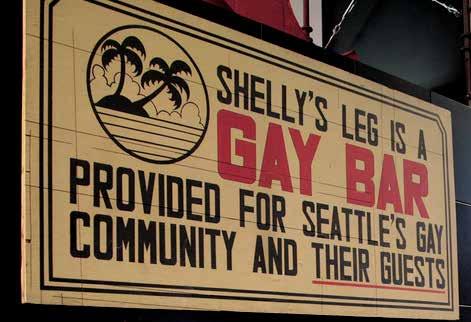
The Hub (1958–66) opened at 421 Denny Way, which is currently occupied by Zeeks Pizza across from KOMO Plaza. It was the first Lesbian bar in Seattle and was filled with a combination of early women athletes and older out women.
With The Mocambo (1951–78) veering Gay in the mid-1950s, Seattle’s Gay scene solidly shifted to Pioneer Square, long established as the center of Seattle’s rowdier nightlife. Several establishments had long welcomed gay people, including The Casino (1930–64) and the Double Header (1934–2015), although neither were aimed at or owned by the Gay community.
A very popular gay bar and restaurant, The Mocambo was the “go-to” bar for men, located at the corner of Yesler and Second Avenue S. The 1976 Gay Community Center Guide described it as having “roomy facilities yet an intimate atmosphere decorated with warm color schemes and accented with subdued lighting.” It is believed to be the first Gay-identified bar in Seattle to legally serve hard liquor aboveground.
It also included a restaurant that catered to all stripes. The private dining room played host to the founding of many of Seattle’s most influential Gay organizations, including the Queen City Business Guild (which later morphed into the Greater Seattle Business Association), the Imperial Sovereign Court of Seattle, the United Ebony Council, and the Dorian Society (later the Dorian Group).
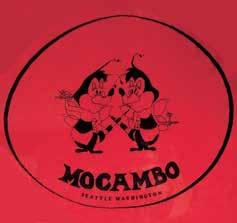
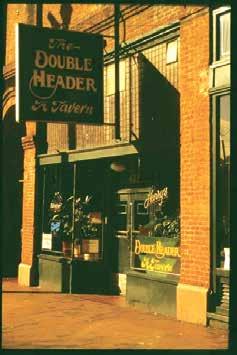
Bill Parkin, a dishwasher at The Mocambo, recounts that “The Mo was a mixed crowd until 1955, when it became mostly Gay — except for daytime, when office workers, courthouse workers, lawyers, and judges came in for lunch,” most likely with no awareness of the nighttime clientele. Bob Bedord, aka B.B., owned “The Mo” from 1969 to 1978 and was a pivotal figure in the development of Gay Seattle. He provided the space for groups to form, opened some of the other main Gay taverns in Seattle, helped other bars and organizations (including Shelly’s Leg (1974–77) and the SGN ) survive lean periods, and played a pivotal role in ending the long-running Seattle payoff system involving both police and Washington State Liquor Control Board agents.
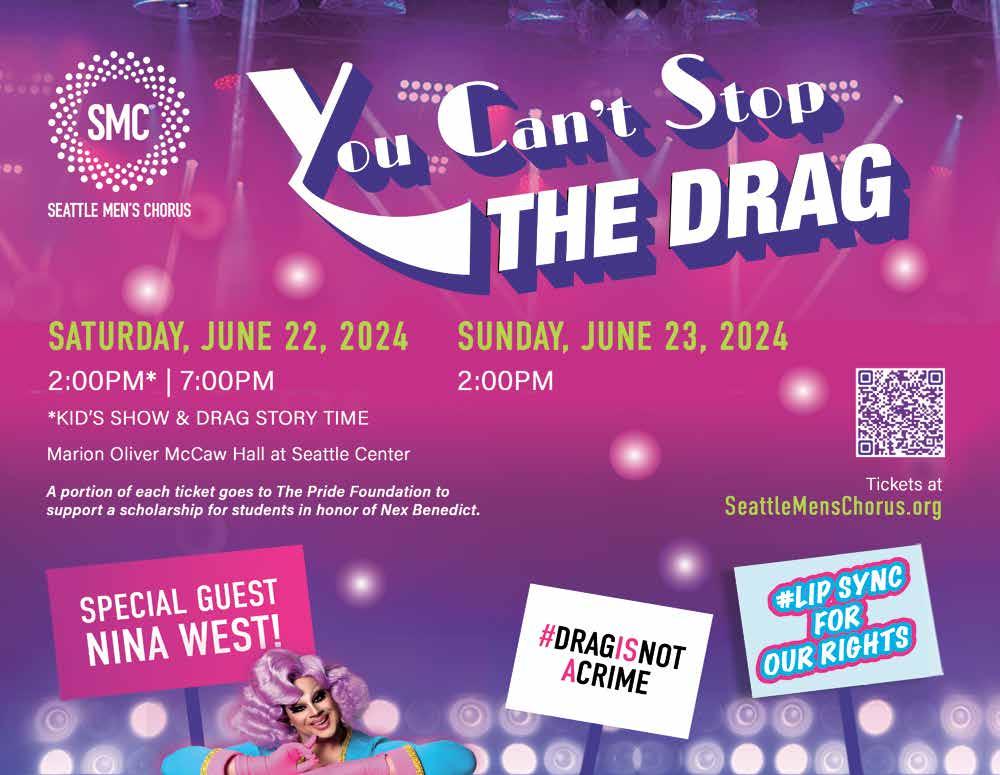
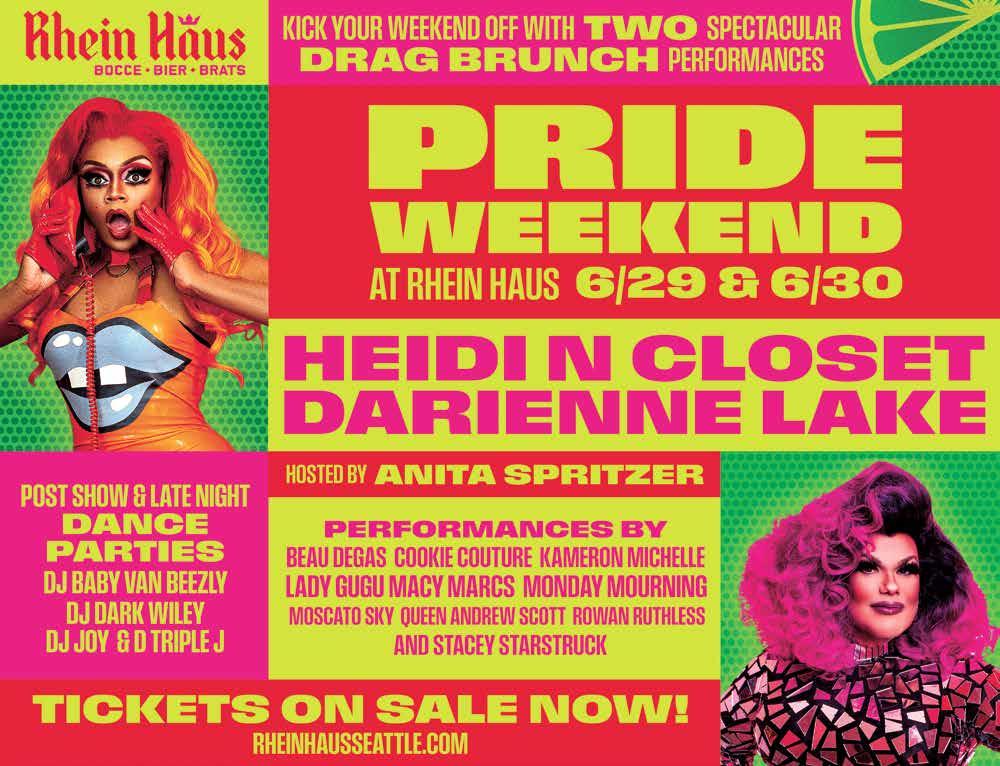
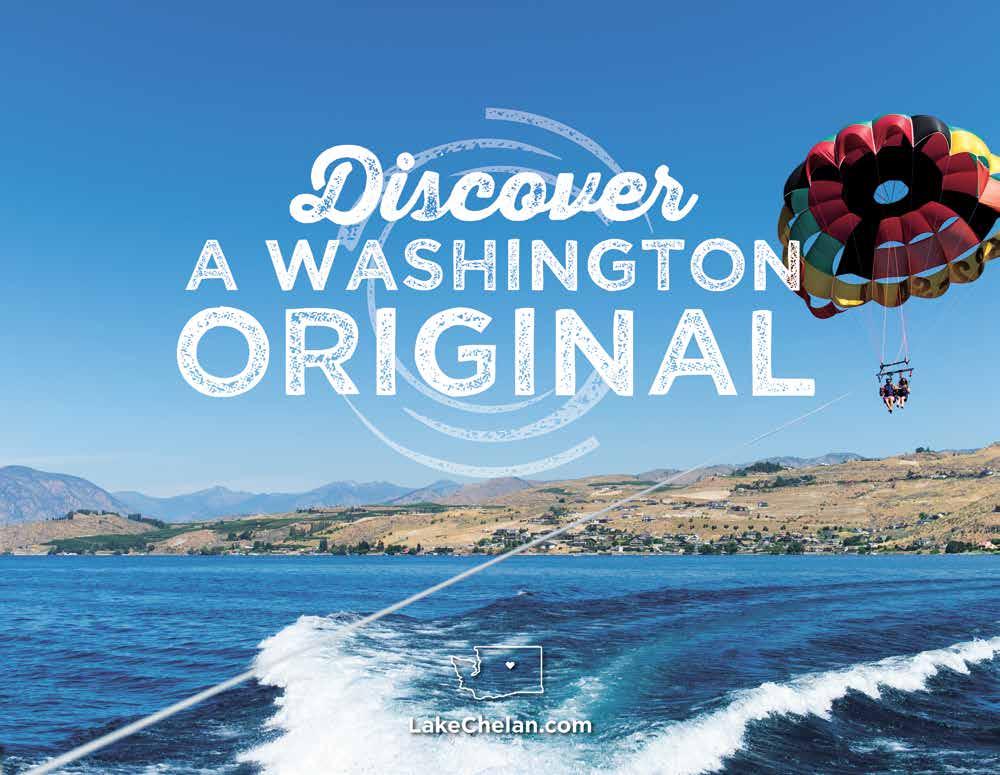


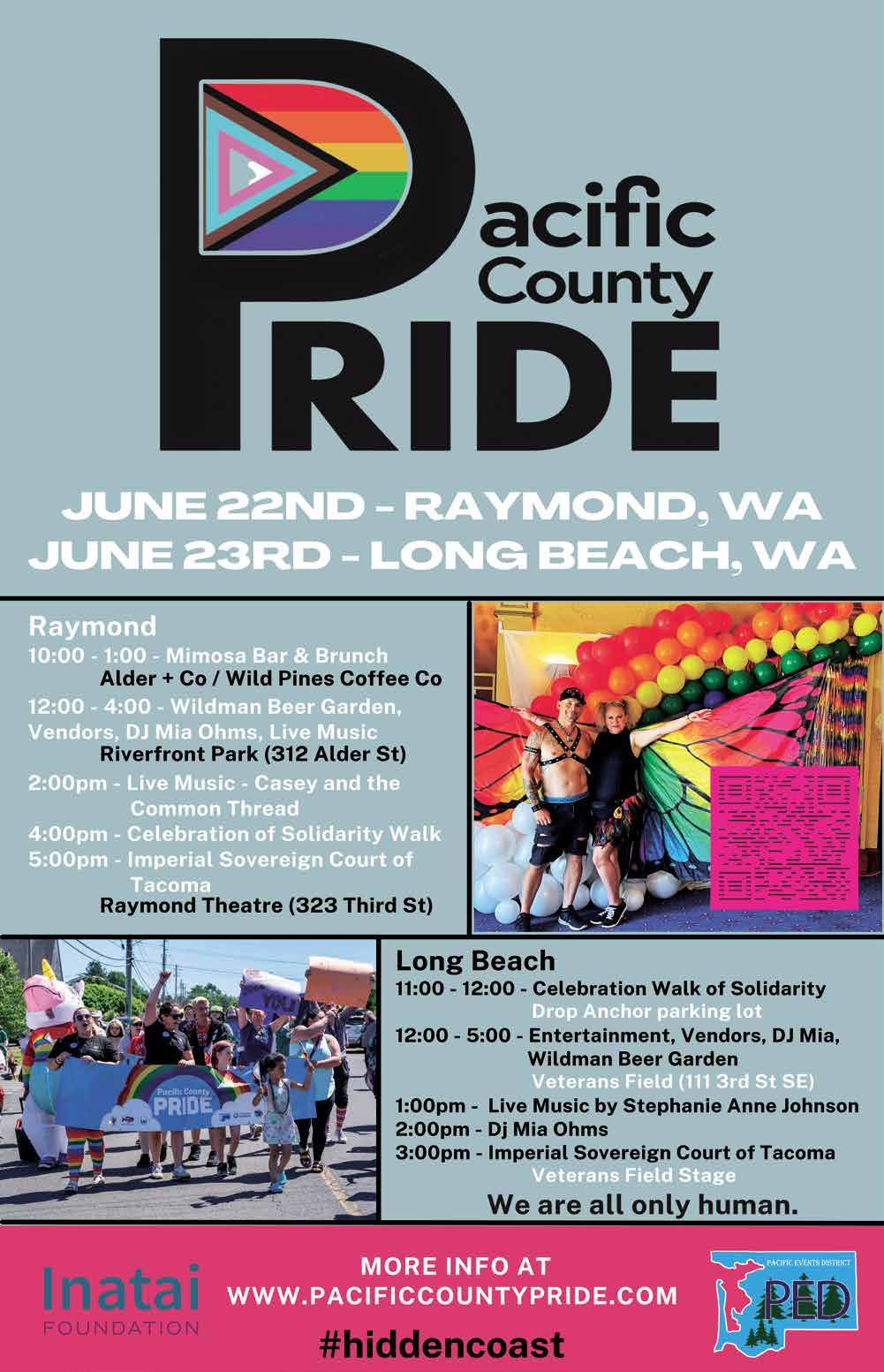
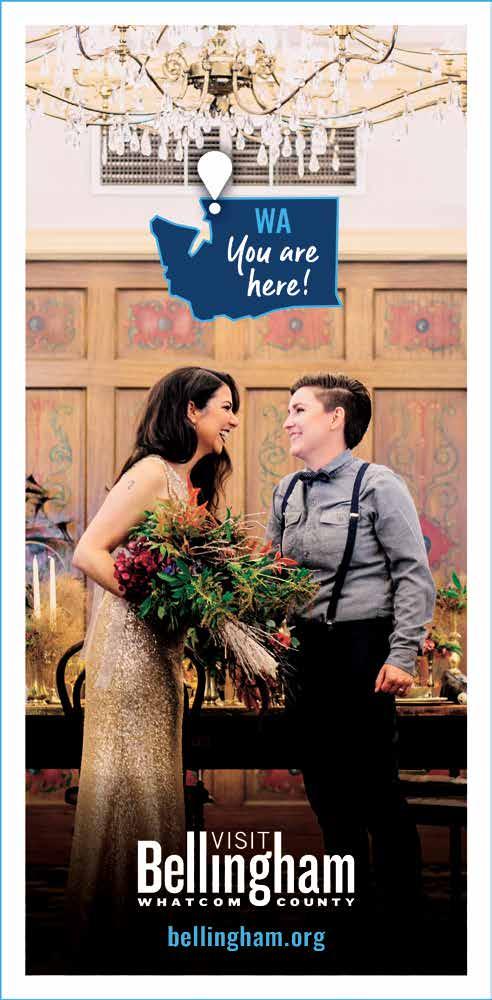


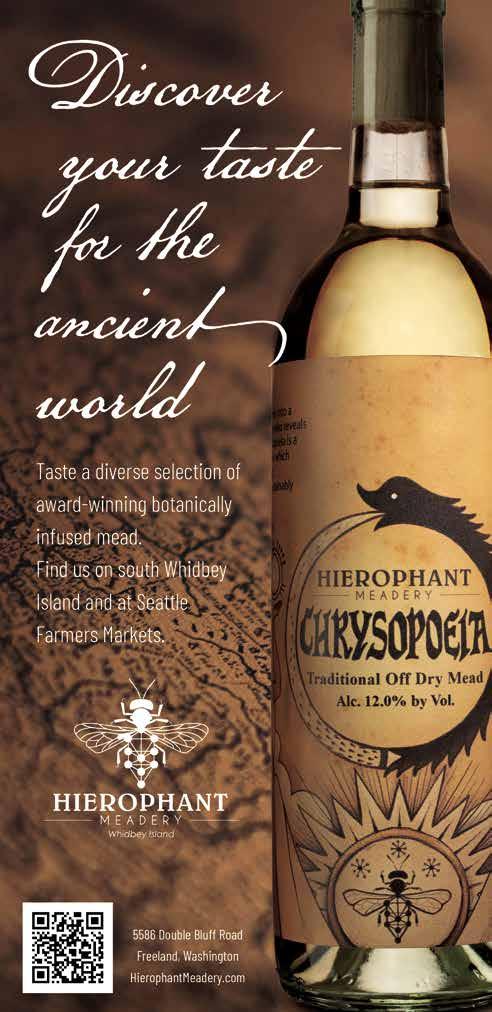
Women’s bars
Not far away was Seattle’s premier woman’s bar, The Silver Slipper (1968–81), owned by Ren Miller. Over its lifetime, it was the place for women to go. And its ads said it: “Girls! Girls! Girls!”
It was described thus by G. Mary Scott: “The Slipper was a women’s bar. It was a Lesbian bar. Occasionally a man would come in, but he would be a Gay man. He was kind of an oddity, you know? He was there because maybe he knew one of the bartenders, or maybe he was a friend or a brother of a customer there that night, or whatever.”
She continued: “It seems to me that the older women just kind of disappeared. I found out later that a lot of them just simply were overwhelmed. They just couldn’t understand or cope with this big influx of feminist, out, wild Lesbians.” The new crowd “didn’t look or act like Lesbians, and they weren’t into butch and femme.”
Shirley Maser, a long-time member of Seattle’s women’s scene, decided to open a new bar, The Crescent (1974–present), one of the first two Gay bars that opened on Capitol Hill. Maser said, “The Slipper is nice, but I felt it attracted a younger crowd, and I wanted a place where older women would feel comfortable.”
In the 1940s, Maser was one of the first women in the Northwest to become a motorcycle aficionado as well as an out athlete. She was a member of the all-female national club The Motor Maids of America, as well as the only out member of Seattle’s Queen City Motorcycle Club. She turned a neighborhood tavern into an women’s bar, but after three exhausting years, she sold it to George Vanderpool and Jim Feigley; the latter owned it until 2008. Since then its ownership has transitioned several times, but it continues to operate at the same location to this day.
More from 1974
Back to Pioneer Square and 1974. After drinks at The Mocambo, you could wander over to The Golden Horseshoe (1961–76), The Doll House (1970–75), The Trojan Shield (1972–75) The Greek Torch (1970–76), The 611 (1962–2003), Don’s Place (1969–75), Gatsby’s (1973–74), or the fabulous new disco everyone was talking about, Shelly’s Leg — all within easy walking distance. No taxi, Uber, or scooter needed! If you wanted to venture out of Pioneer Square, you could walk up Third Avenue to
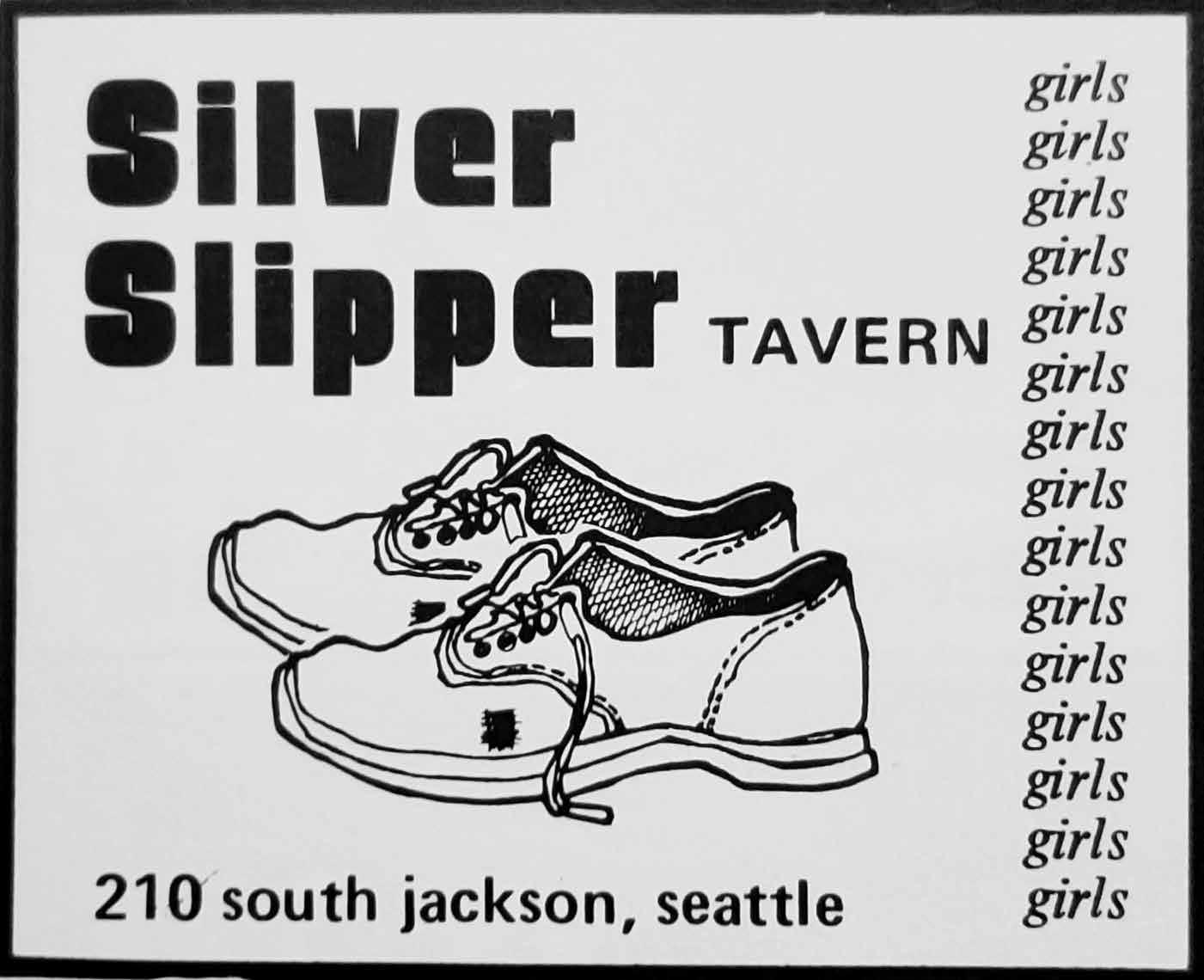
Seattle’s first leather bar, The 922 (1969–75), or walk further still and go to the original “Pike/Pine” area located between Eights and Ninth to visit Spag’s Tavern (1965–87) or Mike’s Pike Street Tavern (1970–77)
With a longer hike up the hill, you could venture on to the only other Gay bar on Capitol Hill, the new Eleven Eleven (1974–77).
Still had energy and looking for fun? You could go to one of several after-hours “private “clubs: the 107 (1971–79) or the Chicken Coop (1971–74) in Pioneer Square or Zach’s Key (1972–74) in what is now called Belltown.
1974: What a year! What a great Queer scene!
With Gay liberation starting to take hold, the Seattle Queer community was ready to explode into the second half of the ’70s!

Come out, Seattle: Gay Bar History Project
The Brass Connection, Manray, Mike’s on Madison, R Place, The Timberline, Thumper’s — all popular Gay bar mainstays as recently as the 1990s and early 2000s. Today they’re all gone, but not yet forgotten.
Unfortunately, that’s not the case for a number of older Seattle LGBTQ+ establishments — such as The Casino, The Golden Horseshoe, The Mocambo, and The Ritz — which played an important role in early Gay life in Seattle. It’s why Steve Nyman and Nathan Benedict have set out to preserve stories and memorabilia of LGBTQ+ watering holes from a bygone era as part of a new history and interactive mapping project called “Come Out Seattle” (https:// ComeOutSeattle.org).
“Come Out Seattle” is dedicated to documenting, exploring, and preserving Seattle’s dynamic LGBTQ+ history, including community spaces such as bars, taverns, and social organizations. It is currently in the development stage but encourages people to contribute via the website to the galleries being built.
The project aims to ensure that Seattle’s LGBTQ+ stories and history are not merely preserved but also celebrated with personal narratives, archived advertisements, news stories, and vintage photos (which are rare, as photos weren’t typically taken inside Gay bars to protect patron
identities) — all woven together in a vibrant archival storytelling tapestry.
“Preserving Seattle’s LGBTQIA+ history is important so that future generations understand the past and how our community has evolved,” said Benedict. “Because so many of us in the LGBTQ+ community don’t have a lot of offspring, if any at all, over time our stories disappear, and our history is lost.”
In Benedict’s opinion, one of Seattle’s earliest bars deserving of more attention is The Mocambo (1951–78). “The Mo was the Gay bar in Seattle,” he said.
“Everyone in town knew The Mocambo’s owner Bob Bedard, and anyone who was anybody visited the bar, even those running for mayor,” Nyman added.
Nyman, who worked at The Mocambo in the mid-1970s, added, “It was an exciting and fun place to work, while also knowing that it was one of the preeminent Gay bars of that time in Seattle, if not on the entire West Coast. [It] was probably the most important of early Pioneer Square Gay bars in terms of being a cornerstone in moving our community forward and ultimately making it visible.”
In 1976, the year the Kingdome opened, the first sporting event was an exhibition game: the Seattle Sounders vs. the NY Cosmos, with 58,128 fans in attendance. A few weeks later, the big-
gest event of the year occurred: an eight-day Billy Graham “crusade.” On that Friday night, 74,000 “crusaders” packed into Pioneer Square, with another 5,000 turned away! Nyman was tending bar at The Mocambo. As the “crusaders” searched for places to eat (or sneak a quick drink!), the staff held both doors open to try to accommodate the crowds — and realized that the long-term Pioneer Square Gay nightlife scene was about to change forever.
Still in the development phase, “Come Out Seattle” draws from and builds on the excellent and extensive previous work done by Don Paulson (An Evening at the Garden of Allah), Richard Freitas (Preserving Pioneer Square’s Queer Landscape), the Northwest Lesbian and Gay History Project (Larry Knopp, Ruth Pettis, Pat Freman, Barb Garil, Emily Hazen, and Angie McCarrell, and its “Claiming Space” map), Gary Atkins (Gay Seattle), and Michael Brown (various articles and projects, including “Queering the Map” and “Shifting Spatialities of LGBTQ Life” with Larry Knopp).
To learn more, or to contribute stories, images, or memories of unforgettable nights at Seattle’s historic LGBTQ+ bars, visit https:// ComeOutSeattle.org.
